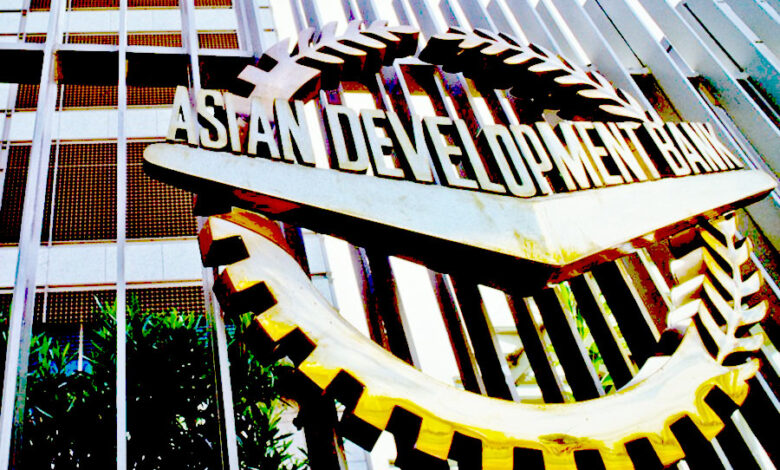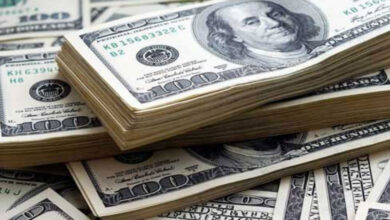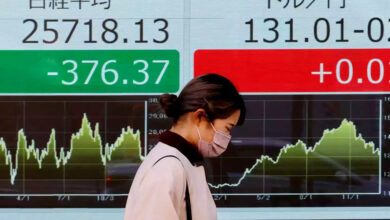The ADB will spend $3.23 billion in Pakistan in 2021 to help the country fight pandemics and promote green recovery.

The Asian Development Bank will give $3.23 billion to Pakistan in 2021 to bolster pandemic response and promote green recovery.
ISLAMABAD, Pakistan –In 2021, the Asian Development Bank (ADB) gave Pakistan $3.32 billion to help them deal with the immediate effects of the coronavirus illness (COVID-19) epidemic and to help them make a green recovery.
Financial and operational results from the ADB’s Annual Report 2021 were released on Monday. They show how the ADB helped developing member countries (DMCs) with a mix of money, expertise, and relationships.
The ADB’s commitment to governments and the business sector in 2021 comprises loans and guarantees, grants, equity investments, and technical support. Additionally, the ADB secured $2.019 billion in co-financing.
The ADB provided $600 million to Pakistan’s Integrated Social Protection Development Program and $235 million to the Central Asia Regional Economic Cooperation Corridor Development Investment Program – Tranche 2, according to the report.
$300 million has been set aside for the development of Balakot hydropower, $372 million for Khyber Pakhtunkhwa cities, and $5 million for the Kurram Tangi Integrated Water Resources Development Project.
Besides that, the ADB agreed to give Pakistan a $300 million loan to help with its energy sector reforms, as well as a $500 million loan to the Asia Pacific Vaccine Access Facility for COVID-19 Vaccine Support.
The ADB pledged $22.8 billion in 2021 from its own resources to assist Asia and the Pacific in addressing the immediate consequences of the coronavirus illness (COVID-19) pandemic and promoting a green recovery. Additionally, the ADB secured $12.9 billion in co-financing.
$13.5 billion, or 59%, of the ADB’s 2021 pledges were for pandemic response. Many of these promises, such as boosting the health sector, would benefit the area long after the epidemic has passed.
The bank’s pandemic response assistance is comprised of $4.9 billion in quick disbursement funding to assist countries with structural changes and debt sustainability. $4.6 billion in policy-based loans and $250 million under the COVID-19 Pandemic Response Option were used to finance the project.
ADB contributed $4.1 billion as part of its pandemic response to support the acquisition and distribution of safe and efficient vaccinations for its DMCs. Additionally, the bank invested $3.3 billion in the private sector to keep companies operating, commerce moving, and medical supplies and services accessible. COVID-19 reaction and recovery strategies were driven by a diverse body of research.
“The ADB is certain that tackling pandemic consequences and promoting long-term development are not mutually incompatible,” ADB President Masatsugu Asakawa said. “Our response to COVID-19 laid the groundwork for an inclusive, resilient, and environmentally sustainable recovery, ensuring that we will meet our 2030 goals.”
Addressing longer-term development problems, including climate change, remained a high priority for ADB activities in 2021.
“Asia and the Pacific will determine whether the fight against climate change is won or lost. To succeed, our region’s transition to a low-carbon future must be accelerated, “Mr. Asakawa said.
To assist in meeting its newly increased goal of $100 billion in cumulative climate finance by 2030, the bank launched a range of funding measures to support the region’s low-carbon growth. For example, the ADB recently came up with the Energy Transition Mechanism, which would use private and public money to pay for the early retirement of coal-fired power plants, speed up the deployment of clean and renewable energy alternatives, and make sure the transition was fair and affordable for everyone.
All of the ADB’s 2021 pledges contain features that help women and girls in particular. Additionally, the bank increased its efforts to help countries mobilise domestic financial resources critical for sustainable development, including the creation of the Asia Pacific Tax Hub, a mechanism for promoting regional tax and associated reforms.
The ADB’s 2021 obligations were financed by its second-largest borrowing programme in history, which borrowed $35.8 billion through financial markets. The ADB sold a record number of themed bonds last year and, for the first time, issued education bonds and blue bonds for ocean health.
Additionally, the Annual Report describes a number of internal changes undertaken to guarantee that ADB has the necessary skills, culture, structure, and instruments to carry out its purpose.





